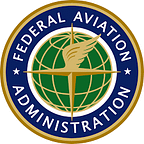Safety Culture Crusader
Kimberly Pyle shares advice for women in their career journey, her belief that culture change can start with just one person, and how asking questions and listening have served her well in her over 20-year career at the FAA.
By Callie Dosberg, FAA
Kimberly Pyle isn’t shy when it comes to asking questions. With a stint in journalism prior to joining the FAA, her inquisitive nature has helped define her leadership style. It’s also shaped how she inspires teams today as the acting deputy vice president for the Air Traffic Organization’s (ATO) Safety and Technical Training office.
“I asked a lot of questions when I was a newspaper reporter, and I apply that same approach with people today,” Pyle said. “I think one of the best management tools is to ask and then listen.”
“People will tell you a lot when you ask them what they think. If you can build a space for people to bubble up those ideas and bounce them off each other, you can build a stronger idea.”
A desire to be a civil servant led Pyle to the FAA in 2002. She held positions in air traffic systems development, corporate communications, safety promotion and congressional communications, but her career took a turn in 2008 when she started working in the field of safety.
“That just changed everything,” Pyle recalls. “I was part of something more than storytelling; I was part of building a resilient infrastructure that could protect people on planes. That was a really pivotal moment in my career.”
Pyle fell in love with safety culture, and the book “Just Culture: Balancing Safety and Accountability” by Sidney Dekker. It inspired her further to push for a culture of open communication in the workplace and in her home life. Today, she oversees the FAA office that develops and maintains safety policy, tools, and metrics used to analyze safety trends and monitor safety performance, as well as the underlying causal factors that contribute to risk.
“My job is to support the people that are managing the systems to keep the airspace safe, to build policies that ensure no single point of failure, and the infrastructure that can get them the information they need,” Pyle said. “The right culture and open communication is a huge part of that.”
To maintain an inclusive culture, she also strives to create an environment where she supports other women in the workplace, and encourages others to do the same.
“It hasn’t always been easy. With that in mind, we need to be empathetic to one another, be cheerleaders for one another, be supportive of one another, and coach one another,” said Pyle. “Don’t be a woman that attacks other women. We each face unique challenges and we owe it to one another to hold each other up and offer ears when things get tough.”
She also encourages women to speak up and know the value of their contributions.
“A wise friend of mine told me that women apologize a lot,” Pyle said. “I have learned to say ‘Thank you for your patience’ instead of ‘I’m sorry.’ I also tell other women not to be afraid to speak up. Everyone has something valuable to contribute. Try not to second-guess your value.”
She cites Teri Bristol — the former ATO chief operating officer and the first woman to hold that position — as a mentor.
“Teri broke glass ceilings, and I learned so much from her. One of the things I’ve learned is she was always supportive of other women, and took the time to encourage us no matter how busy she was,” Pyle said.
Support is something Pyle is passionate about as well, noting that she is most proud when her teams collaborate in honest and respectful ways rather than using command-and-control behaviors.
“I feel like I have been successful when I see those collaborative and teamwork-focused behaviors that are full of humility with the goal to learn more,” Pyle said. “I think that’s what I’ve been trying to do for the last 10 years: Trying to create that space for people to behave that way. That’s what gets me excited, seeing that you can have an impact on culture. One person can have an impact on their sphere of influence.”
While she believes culture change can start with just one person and then expand, she also notes the larger safety implications and positive results that can come from a strong culture.
“No matter what, I’m in control of how I am going to respond,” she said.
“Am I going to show up as somebody who has a growth mindset, wants to learn more, respects others and is kind? Those are behaviors that help build a stronger safety culture, which is a really good thing for aviation. I’m passionate about getting people to make the connection between culture and safety performance because they are directly tied.”
In today’s fast-paced world where multitasking might seem like a necessity to get everything done, Pyle takes a different approach.
“When you’re doing something, give it all of your attention, focus on it 100 percent,” said Pyle. “That means when you’re at work you’re fully engaged, you’re listening to who is talking to you, you’re not checking your email or working on your next project.
“Then when you’re at home, put your work away, because then you’re going to be able to recharge. People talk about juggling all the time but I have found that giving 100 percent gets the best results.”
